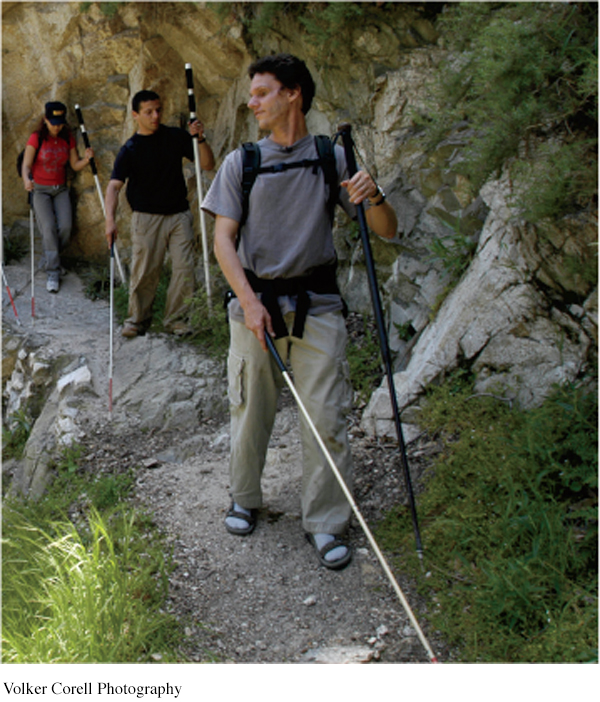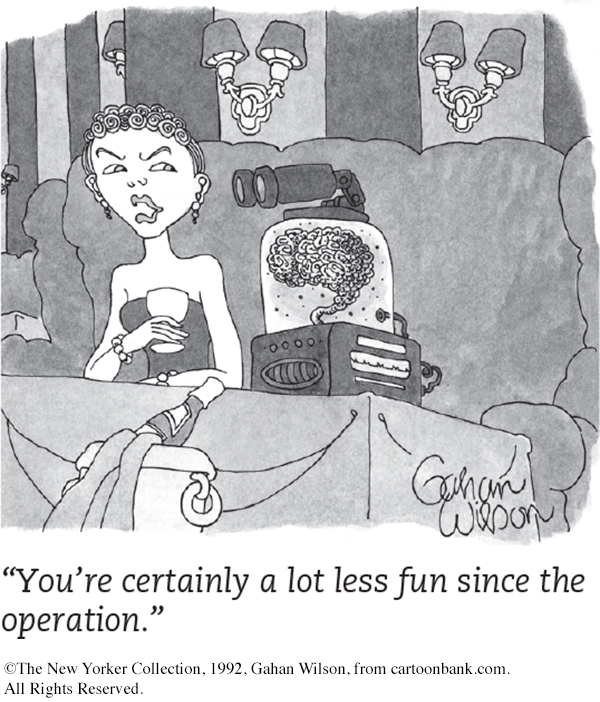2.1 The Brain: A Work in Progress
LOQ LearningObjectiveQuestion
2-
plasticity the brain’s ability to change, especially during childhood, by reorganizing after damage or by building new pathways based on experience.

Your brain is sculpted not only by your genes but also by your experiences. Under the surface of your awareness, your brain is constantly changing, building new pathways as it adjusts to new experiences. This neural change is called plasticity, and it continues throughout your life (Gutchess, 2014). Plasticity is part of what makes the human brain unique (Gómez-
Consider the case of Daniel Kish. He is an enthusiastic mountain biker and a skilled cook. Daniel is also completely blind. To “see” his surroundings, he learned to use echolocation—
biological psychology the scientific study of the links between biological and psychological processes.

cognitive neuroscience the interdisciplinary study of the brain activity linked with cognition (including perception, thinking, memory, and language).
How does our brain create our mind? Such questions fascinate biological psychologists, who study the links between biological (genetic, neural, hormonal) processes and psychological processes. In cognitive neuroscience, people from many fields join forces to study the connections between brain activity and mental processes. One of the great mysteries these scientists are trying to solve is consciousness—
Around the world, researchers are unlocking the mysteries of how our brain uses electrical and chemical processes to take in, organize, interpret, store, and use information. One giant study, the $40 million Human Connectome Project, is mapping long-
Our own exploration of the brain starts small and builds—
Retrieve + Remember
Question 2.1
•What do psychologists mean when they say the brain is “plastic”?
ANSWER: The brain adapts to new experiences by building new pathways.
Question 2.2
•What branch of psychology studies the links between behavior and biology?
ANSWER: biological psychology